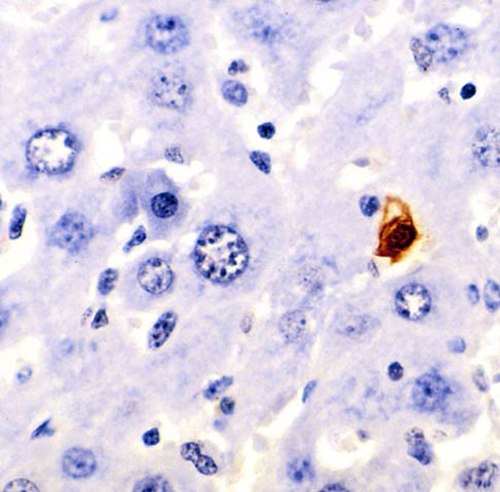Necrosisnoun
(pathology) The localized death of cells or tissues through injury, disease, or the interruption of blood supply.
Necrosisnoun
The pathologic death of part of a tissue due to irreversible damage. Contrast to necrobiosis, which is a normal death of cells in a tissue. Formerly, applied primarily to death of bone tissue.
Necrosisnoun
A disease of trees, in which the branches gradually dry up from the bark to the center.
Necrosisnoun
the localized death of living cells (as from infection or the interruption of blood supply)
Necrosis
Necrosis (from Ancient Greek νέκρωσις, nékrōsis, ) is a form of cell injury which results in the premature death of cells in living tissue by autolysis. Necrosis is caused by factors external to the cell or tissue, such as infection, or trauma which result in the unregulated digestion of cell components.
Apoptosisnoun
A process of programmed cell death by which cells undergo an ordered sequence of events which leads to death of the cell, as occurs during growth and development of the organism, as a part of normal cell aging, or as a response to cellular injury.
Apoptosisnoun
a type of cell death in which the cell uses specialized cellular machinery to kill itself; a cell suicide mechanism that enables metazoans to control cell number and eliminate cells that threaten the animal's survival
Apoptosis
Apoptosis (from Ancient Greek ἀπόπτωσις, apóptōsis, ) is a form of programmed cell death that occurs in multicellular organisms. Biochemical events lead to characteristic cell changes (morphology) and death.













